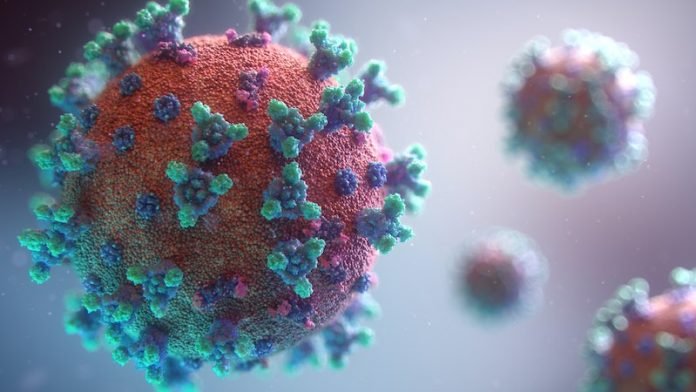
The virus that causes COVID-19 today is not the same as the one that first sickened people way back in December 2019.
Many of the variants circulating now are partially resistant to some of the antibody-based therapeutics that were developed based on the original virus.
As the pandemic continues, more variants inevitably will arise, and the problem of resistance will only grow.
In a recent study from Washington University in St. Louis, researchers have identified an antibody that is highly protective at low doses against a wide range of viral variants.
Moreover, the antibody attaches to a part of the virus that differs little across the variants, meaning that it is unlikely for resistance to arise at this spot.
The findings could be a step toward developing new antibody-based therapies that are less likely to lose their potency as the virus mutates.
Current antibodies may work against some but not all variants. The virus will likely continue to evolve over time and space.
Having broadly neutralizing, effective antibodies that work individually and can be paired to make new combinations will likely prevent resistance.
SARS-CoV-2, the virus that causes COVID-19, uses a protein called spike to attach to and invade cells in the body’s respiratory tract. Antibodies that prevent spikes from attaching to cells neutralize the virus and prevent disease.
Many variants have acquired mutations in their spike genes that allow them to evade some antibodies generated against the original strain, undermining the effectiveness of antibody-based therapeutics.
In the study, the team immunized mice with a key part of the spike protein known as the receptor-binding domain. Then, they extracted antibody-producing cells and obtained 43 antibodies.
The researchers screened the 43 antibodies by measuring how well they prevented the original variant of SARS-CoV-2 from infecting cells in a dish.
Nine of the most potent neutralizing antibodies were then tested in mice to see whether they could protect animals infected with the original SARS-CoV-2 from disease.
The researchers selected the two antibodies that were most effective at protecting mice from disease and tested them against a panel of viral variants.
The panel comprised viruses with spike proteins representing all four variants of concern (alpha, beta, gamma and delta), two variants of interest (kappa and iota), and several unnamed variants that are being monitored as potential threats.
One antibody, SARS2-38, easily neutralized all the variants.
Moreover, a humanized version of SARS2-38 protected mice against disease caused by two variants: kappa and a virus containing the spike protein from the beta variant.
The beta variant is notoriously resistant to antibodies, so its inability to resist SARS2-38 is particularly remarkable, the researchers noted.
The team says this antibody is both highly neutralizing (meaning it works very well at low concentrations) and broadly neutralizing (meaning it works against all variants).
That’s an unusual and very desirable combination for an antibody. Also, it binds to a unique spot on the spike protein that isn’t targeted by other antibodies under development. That’s great for combination therapy.
If you care about COVID, please read studies about the cause of blood clots in people with severe COVID-19 and this existing drug could inhibit the COVID-19 virus.
For more information about COVID, please see recent studies about antibodies from COVID-19 vaccination almost 3 times higher than from infection and results showing that aspirin and other common anti-inflammatory drugs could help prevent COVID-19 deaths.
The study is published in Immunity. One author of the study is Michael S. Diamond, MD, Ph.D.
Copyright © 2022 Knowridge Science Report. All rights reserved. (Updated)



